This Rajasthan Widow Broke All Social Customs to Become a Health Worker after Her Husband’s Death
Moti Meena has done what not many women of her lot would have had the courage to do – she stood up for what she believed in, shunned regressive practices imposed in the name of tradition, and refused to remain imprisoned within the four walls of her home after the demise of her husband.
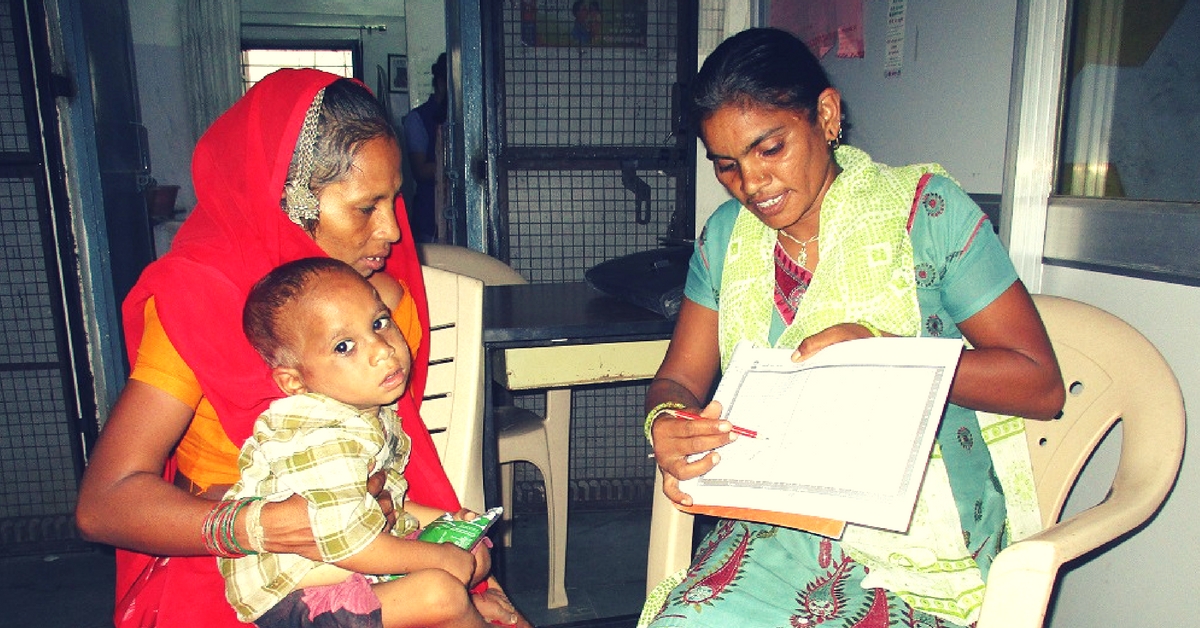
Moti Meena has done what not many women of her lot would have had the courage to do – she stood up for what she believed in, shunned regressive practices imposed in the name of tradition, and refused to remain imprisoned within the four walls of her home after the demise of her husband. As is the custom, widows in southern Rajasthan are under tremendous pressure to adhere to oppressive social customs, especially remarrying within the marital family and limiting their mobility.
But when Moti lost her husband to an unknown illness in 2007, not only did she decline to remarry she made up her mind to work to support her three sons, single-handedly.
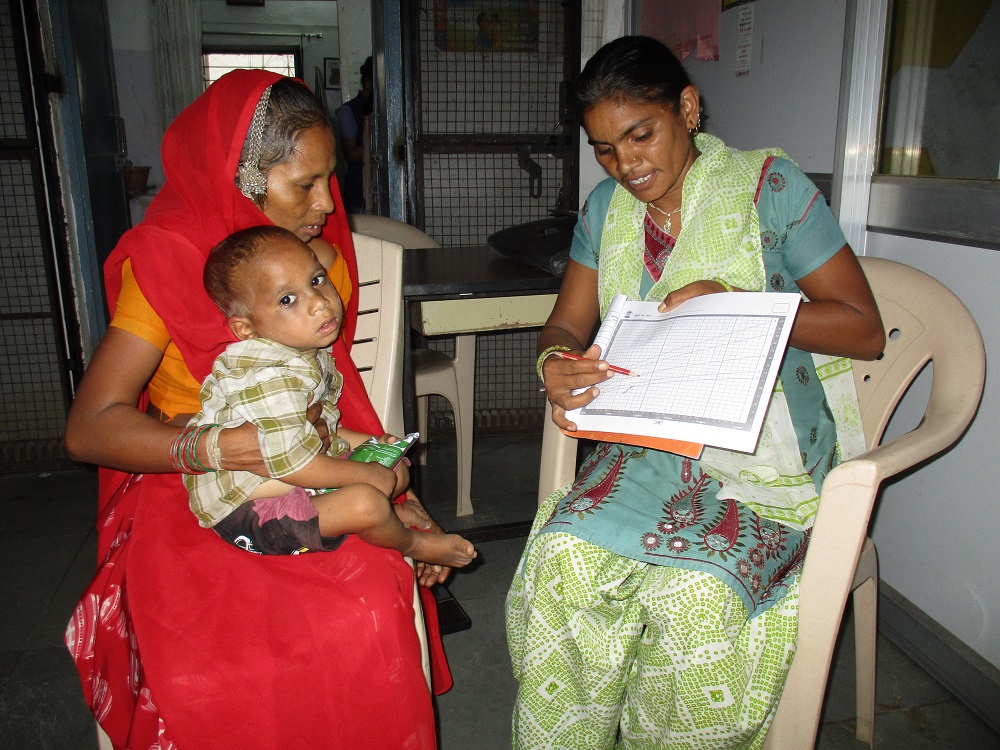
Nine years later, this feisty tribal woman is a senior health worker with a non government organisation that runs three clinics in remote villages of Salumber block in Udaipur. She spreads awareness about health and nutrition, educates women on ante- and post-natal care, follows up on tuberculosis patients during the community outreach, and counsels walk-ins at the clinic at Berawal gram panchayat. Married at 18, widowed at 28, Moti has certainly struggled hard to get back on her feet and establish herself as an independent woman.
You may also like: The Life of Domestic Workers in India. And The Ray of Hope.
Moti and her husband had worked hard to build a life together, which abruptly came to an end with his untimely demise. When she had gotten married in 1997 she used to stay in a joint family with her parents-in-law and her husband’s two younger brothers in their village Manpur. When one of his brothers got married in 2001, her husband decided to move out of the small home. While he used to routinely go to Ahmadabad in the neighbouring state of Gujarat to find work, eventually, he managed to get a job with a non government organisation near home itself. He used to help them organise literacy camps in the area. It wasn’t easy to make ends meet on his meagre salary of Rs 1,000, especially with three sons to provide for, so when in 2006 an anganwadi centre was to be set up in Manpur Moti and he decided that it was time for her to step out of the home.
“There were only two educated women in Manpur at the time. I have studied till Class 5 so I got the job as the anganwadi helper while another woman who had completed her education till Class 8 became the anganwadi worker. I got Rs. 500 per month to cook, do the dishes, clean the campus and generally assist the anganwadi worker. Although we hail from a conservative background my in-laws didn’t object to my working because my husband was alive and I had his support,” she recalls.
Meanwhile, her husband fell ill and his health started deteriorating rapidly. “We didn’t know what he was suffering from; no one could diagnose his disease and it was a very frustrating and disheartening time for us. Desperate for some kind of remedy, on the advice of the villagers, I even took him to Dungarpur, over 100 km away, to a Muslim shrine. But nothing helped,” she says.
Moti was working at the anganwadi when she heard of her husband’s passing.
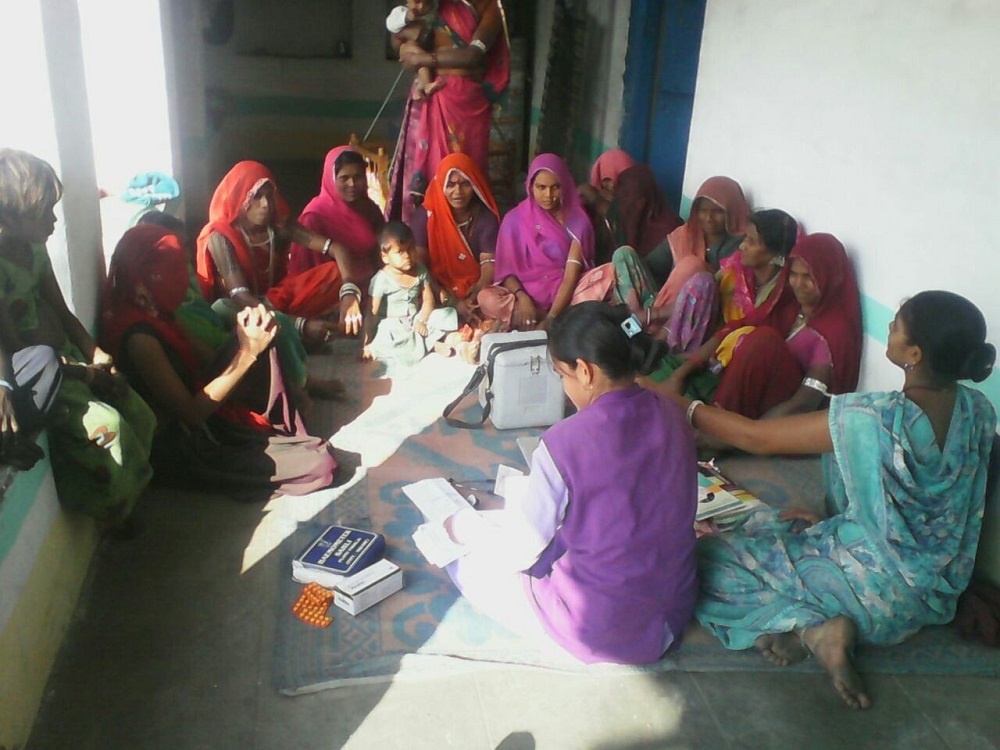
“Within four months I had lost him. Even today, it’s very painful to relive those days,” she shares. Of course, what followed after his death was no less tormenting. The elders started telling her to get married again and when she refused outright she was subjected to domestic violence. One of her brothers-in-law beat her up for being defiant but because “the villagers were backing me up and also my own parents I was able to resist the pressure”.
What worked in Moti’s favour was the fact that activists of Aajeevika Bureau came to her village to organise a health camp. “When people from Aajeevika Bureau came and spoke to us about healthcare and asked if anyone of us could become a community health volunteer, I immediately decided I wanted to be one,” she elaborates.
Aajeevika Bureau, a non-profit working in the remote villages of Salumber block, runs a family empowerment programme for rural women. “The programme is aimed at increasing the capacities and agency of such women so that they can take greater control of their lives and the well-being of their families,” says Abha Mishra of Aajeevika Bureau. What impressed the activists about Moti was her sense of commitment and her rapport with the people.
Her decision to work with Aajeevika and go for the capacity building training did not go down well with her in-laws who threw her out the house and refused to look after her boys in her absence. Her parents, who live 35 kilometres away, stepped in to take in her children and also support her financially. In March 2009, she underwent a two-day training at Aajeevika Bureau’s office in Salumber. On returning, she immediately jumped into her work as a health volunteer communing everyday from her natal village to Manpur.
You may also like: Celebrating India’s Rural Women: 3 Inspiring Stories of Women Farmers Bringing About Change
She would organise meetings of women in her village, tell them about family planning measures, spacing between children, distribute contraceptives, as well as ante-natal and pre-natal care. For this she earned a small but welcome sum of Rs. 500.
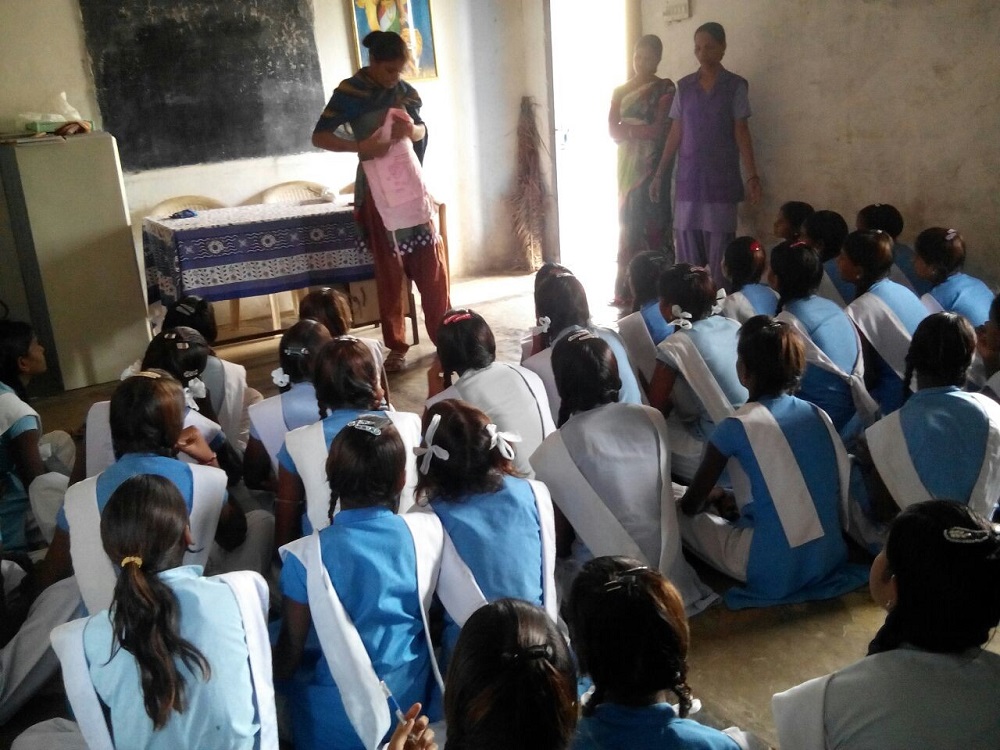
“But as I interacted with the people from Aajeevika, I slowly realised that I needed to study further if I hoped to go ahead in this field,” she says. Consequently, Moti sat for Class 8 examination as a private candidate in 2009 and later passed her Class 10 from open school system in 2012.
In 2012, she was given the opportunity to go for a nine-month paramedic training to Bilaspur in Chhattisgarh. Whereas this stint enabled her to upgrade her skills it didn’t auger too well for her sons who had to live with their paternal grandparents for that period. Her eldest, Jayanti, ended up dropping out because the elders would abuse him if he went to school; they wanted him to work in the farm and graze goats. After some days, he ran away to Moti’s parents. When she came back from the training, she tried to put him into school but it was too late. Presently, her other two sons, Kailash and Shravan, are in Classes 8 and 4, respectively.
Today, Moti is posted at the Berawal clinic being run by Aajeevika Bureau. Incidentally, the NGO has three clinics at Berawal, Manpur and Ghated gram panchayats. Each clinic has three nurses and two senior health workers. One of the health workers is a woman. The clinics provide OPD services from 9 am to 5 pm every day and round-the-clock emergency services.
The facility at Berawal covers three panchayats – Berawal, Khajuri and Sati Ki Chori – and often Moti has to traverse nearly five kilometres a day to reach remote households. She lives in a rented accommodation in Berawal, paid for by Aajeevika which also takes care of her electricity and water bills. She has 15 volunteers reporting to her; most are illiterate. “They do what I did until a few years ago,” she says, “I attend their meetings once a month.” These days, she is getting a salary of Rs 9,300 and is happy that she is doing a job she is passionate about. “I lost my husband to an undiagnosed disease; I don’t want others to die as he did. My team of health volunteers and I have raised awareness levels in villages about health issues,” she says proudly.
Interestingly, Moti has set her sights higher now.
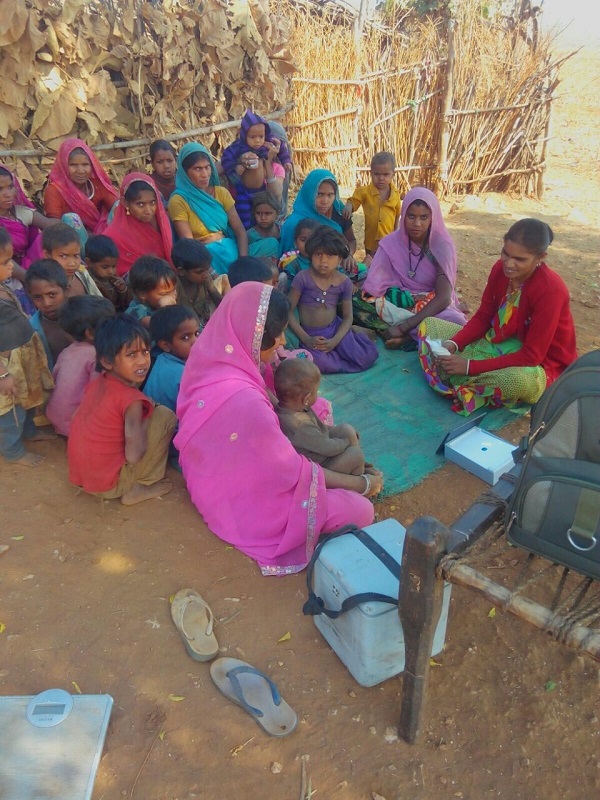
She wants to become a qualified nurse. Dr Pavitra Mohan, Aajeevika Bureau’s Director (Public Health), informs, “She’s studying hard to pass her Class 12, the eligibility criterion for getting into a nursing school.”
Moti has the last word, “When one steps outside home, one’s knowledge increases. Now I want to know everything!”
You may also like: An IIT Bombay Initiative That’s Using Solar Power to Empower Women in Rajasthan
All pictures: Renu Rakesh
Like this story? Or have something to share? Write to us: [email protected], or connect with us on Facebook and Twitter.
NEW: Click here to get positive news on WhatsApp!
If you found our stories insightful, informative, or even just enjoyable, we invite you to consider making a voluntary payment to support the work we do at The Better India. Your contribution helps us continue producing quality content that educates, inspires, and drives positive change.
Choose one of the payment options below for your contribution-
By paying for the stories you value, you directly contribute to sustaining our efforts focused on making a difference in the world. Together, let’s ensure that impactful stories continue to be told and shared, enriching lives and communities alike.
Thank you for your support. Here are some frequently asked questions you might find helpful to know why you are contributing?


This story made me
-
97
-
121
-
89
-
167











